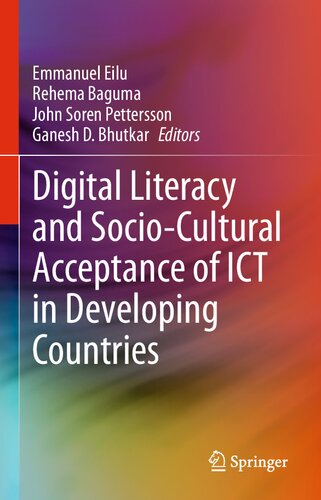

Most ebook files are in PDF format, so you can easily read them using various software such as Foxit Reader or directly on the Google Chrome browser.
Some ebook files are released by publishers in other formats such as .awz, .mobi, .epub, .fb2, etc. You may need to install specific software to read these formats on mobile/PC, such as Calibre.
Please read the tutorial at this link: https://ebookbell.com/faq
We offer FREE conversion to the popular formats you request; however, this may take some time. Therefore, right after payment, please email us, and we will try to provide the service as quickly as possible.
For some exceptional file formats or broken links (if any), please refrain from opening any disputes. Instead, email us first, and we will try to assist within a maximum of 6 hours.
EbookBell Team

4.7
76 reviewsThis book discusses the role of human computer interaction (HCI) design in fostering digital literacy and promoting socio-cultural acceptance and usage of the latest ICT innovations in developing countries. The book presents techniques, theories, case studies, and methodologies in HCI design approaches that have been used to foster digital literacy, break the socio-cultural barriers to ICT adoption, and promote the widespread usage of the latest innovations in the health, agriculture, economic, education and social sectors in developing countries. The authors provide insights on how crossing disciplines in HCI such as usability design, user centered design, user experience, anticipated user experience, technology acceptance design, persuasive design, philosophical designs, motivational design, social-cultural oriented designs, and other HCI design approaches have promoted digital literacy and stimulated socio-cultural acceptance and the usage of the latest ICT innovations. The book is relevant in academic, industry and government.